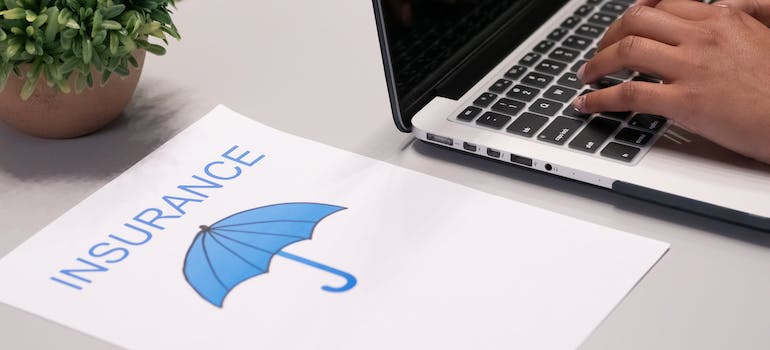Hiring a piano mover is a task that demands careful consideration. Also, you must understand the unique challenges involved in transporting such a delicate and valuable instrument. Pianos are not only heavy but also hold sentimental and monetary value. With that in mind, hiring the right people for the job, such as DC piano movers, for example, becomes even more essential. If you are facing this tough choice, you’re in the right place. This guide will equip you with the knowledge to make an informed and confident decision, ensuring your piano’s safety and your peace of mind.
Essential questions to ask before hiring a piano mover
Ascertaining the competence and reliability of piano movers can be a challenging task. However, armed with the right set of questions, you can effectively determine whether you are entrusting your precious instrument to capable hands. The questions you ask can reveal crucial information about the movers’ expertise, experience, and approach to handling such a delicate task. Here are some suggestions that can give you the most data:
- Is the mover properly licensed?
- Is the mover fully insured?
- Does the mover know how to move a piano correctly?
- Can they provide references from previous clients?
- How does the mover handle delicate piano components?
- What specific equipment and techniques will they use?
These questions are your tools to peel back the layers of assurance and professionalism. The answers will help you determine if you’re dealing with the right people for this important job.

Is the mover properly licensed?
All movers, including those specialized in pianos, must have a license both in the state they work and from the U.S. Department of Transportation. The mover should be able to provide you with both a US-DOT number and an MC (Motor Carrier) number. It is legally required to list these numbers on their website and display them on their truck. However, it’s a big red flag if these numbers are not displayed in both places. Once the mover provides you with these numbers, you can search the Department of Transportation database to find out if the Licenses are valid.
Is the mover fully insured?
Searching for the US-DOT and MC numbers is beneficial for two reasons. If the mover’s policies get canceled for any reason, the US-DOT will suspend or revoke their MC Number/license. Also, the movers should be able to provide you with a valid COI (Certificate of Insurance) before the move. This will list all of their insurance policies along with the limitations each of them comes with.

Does the mover know how to move a piano correctly?
All the movers you talk to will try to convince you that they are experts on moving pianos. In reality, very few of them do. Only those with years of experience and knowledge of proper moving techniques can do this complex task correctly. When talking to the mover:
- They should be able to confidently describe the entire process, including breaking down and setting up a grand piano for you.
- They should also have pictures or videos on their website demonstrating their procedure.
It might be a good idea to familiarize yourself with the correct way how to do this before you ask them to describe their methods. That is how you’ll know whether they know what they’re talking about.
Can they provide references from previous clients?
Any reputable mover must have at least a few references from their previous clients. These people or businesses can provide you with their personal experience with the mover. You should follow up on these references, as they offer a real-world glimpse into the mover’s reliability and quality of service. For example, if you are looking at movers DC area residents trust, ask specifically for references from clients within that region. This will give you an idea of their familiarity and experience with local logistics and challenges.
Additionally, inquire about the nature of these previous moves – were they grand pianos, uprights, or other types of pianos? Understanding the variety of instruments they’ve handled can also indicate their level of expertise. Moreover, ask these references about the mover’s punctuality, care in handling the piano, and their overall satisfaction with the service.
How does the mover handle delicate piano components?
Handling the piano’s delicate components is important and often not managed correctly. Therefore, you should ask how movers deal with this. Particularly, the care for keys, pedals, and strings is something they should tell you about. Skilled movers will use specialized padding and wrapping techniques. This ensures protection against scratches and impacts during transit. For example, if you are dealing with companies such as Washington DC hourly movers, asking this question will further confirm whether they know how to handle this specific task. Additionally, inquire about their strategy for protecting the piano’s exterior. This includes the body and finish, which are prone to damage. A professional mover’s approach to these details reflects their expertise and dedication.

What specific equipment and techniques will they use?
When hiring a piano mover, you should ask them to disclose what equipment and techniques they intend to use. It’s a deciding factor in ensuring safe transport. Look for movers using dollies designed for pianos. These specialized dollies distribute weight evenly, reducing strain. For example, any of the residential movers Washington DC offers will tell you that navigating tight spaces is a common challenge. Therefore, you should check with your candidates how they intend to handle this particular issue.
Also, check if they use skid boards for moving over uneven surfaces and inquire about the types of straps and padding they use. Moreover, ask if they employ techniques to minimize vibration during transit. Vibration control is essential for protecting the piano’s internal components. Finally, you’ll want to find out about their loading and unloading methods. The proper technique here is critical to avoid damage. The right equipment and methods reflect a mover’s commitment to safety. This knowledge gives you confidence in their ability to handle your piano.
Trust your instincts
If the movers look or act sketchy, have poor communication skills, don’t return phone calls, etc. they are probably not the movers for you. It is all too common for a guy who has “moved a few pianos” to buy or rent a truck, grab a couple of guys at the corner market, and call himself a piano mover. Therefore, apart from all of these aforementioned questions, rely on your intuition and trust it if something feels off.
A harmonious move for your piano depends on the right choice of movers
Hiring a piano mover who will not disappoint you is a decision that requires careful thought and thorough research. However, if you ask the right questions, you can ensure that your piano is in safe and capable hands. Always keep in mind that the safety and preservation of your instrument should be the top priority. With the right people for the job, you can have peace of mind knowing that your beloved piano will be moved safely and efficiently to its new home.


